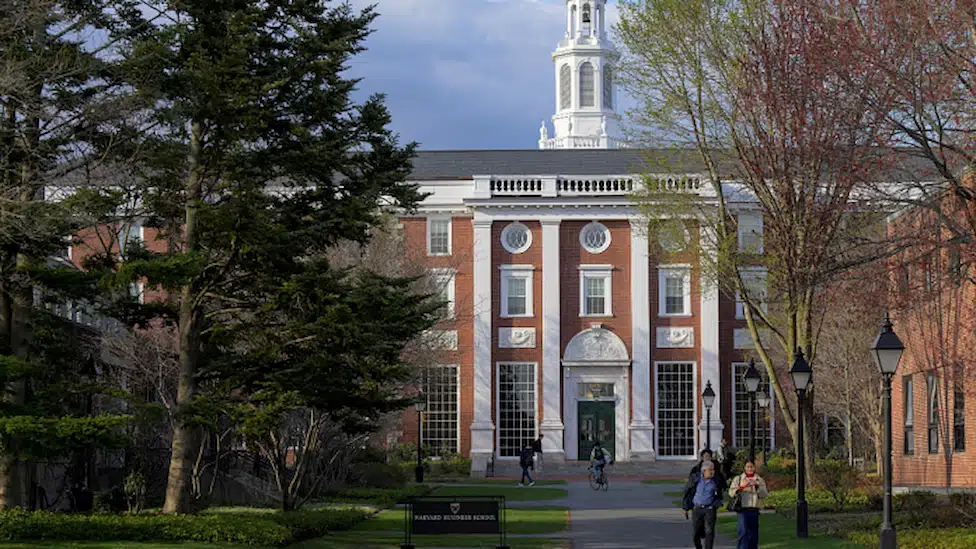Trump Suspends Entry of Harvard International Students: On Wednesday, June 4, 2025, U.S. President Donald Trump suspended entry for Harvard international students. The six-month ban affects foreign nationals studying or in exchange programs. Trump cited national security risks. Harvard called the move illegal retaliation. The university vowed to protect its students. The order also threatens current student visas.
This follows a legal battle over Harvard’s foreign student enrollment. The administration has clashed with Harvard over funding and policies. A federal judge recently blocked similar actions. The new ban escalates tensions between the White House and the prestigious Ivy League school.
Also Read | Harvard Foreign Students Win Temporary Reprieve as Judge Blocks Trump Enrollment Ban
Trump Suspends Entry of Harvard International Students: Insights
- Trump’s order targets Harvard international students over alleged security risks.
- Harvard claims the ban violates its First Amendment rights.
- The suspension may extend beyond six months.
- Visa revocations for current students are possible.
- A federal judge previously blocked similar restrictions.
- The U.S. State Department will increase visa vetting for Harvard applicants.
Background
The Trump administration has long criticized Harvard. Earlier, it froze funding and threatened its tax-exempt status. In May, Homeland Security tried revoking Harvard’s foreign student certification. A judge blocked the move. The administration then shifted to a slower legal process.
Harvard says the government is punishing it for resisting control. The school has many Harvard international students, making up 25% of its population. The FBI warns foreign students that they may pose security risks. Trump’s latest order intensifies this conflict, raising concerns for students and academia.
Main Event
President Trump suspended entry for Harvard international students on Wednesday. The six-month ban stops foreign students from studying at Harvard. Trump’s order claims national security concerns. It also directs visa reviews for current students.
Harvard responded strongly. The university called the ban illegal retaliation and promised to defend its students. A federal judge recently blocked a similar move, saying Harvard’s students needed protection.
The administration argues Harvard has risky foreign ties. It accuses the school of radicalism and ties to China. The FBI warns foreign students that they may exploit U.S. research.
Harvard denies these claims. It says the government wants to control its policies. The school sued after Homeland Security’s earlier action, but a judge temporarily stopped that effort.
Meanwhile, the State Department ordered stricter visa checks. Consulates must scrutinize Harvard applicants more closely. The administration claims Harvard failed to report student misconduct.
This ban adds to ongoing fights. The White House has cut Harvard’s funding and proposed ending its tax benefits. Harvard remains defiant, calling the moves unfair. Legal battles will likely continue.

Graduates and attendees gather for Harvard University’s 374th commencement ceremony in Cambridge, Massachusetts, on May 29, 2025.
Photo Credits: REUTERS.
Also Read | Trump Administration’s Harvard Foreign Students Ban: What You Need to Know
Implications
The ban impacts many groups. Harvard international students face uncertainty. Some may lose visas or entry rights. The university could lose talent and funding.
For the government, this reinforces its tough stance on immigration. Critics say it harms education and research. Businesses may worry about losing skilled workers.
The public will see another clash between Trump and academia. Legal fights will delay final outcomes, and future policies may target other schools.
Conclusion
Trump’s ban on Harvard international students escalates a political battle. Harvard will fight it legally. The outcome may shape future student visa policies. Experts warn of lasting damage to U.S. education. The following months will test both sides. Students, schools, and officials must prepare for changes.



